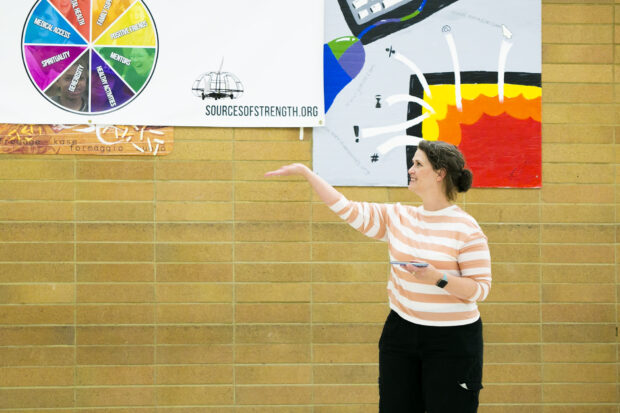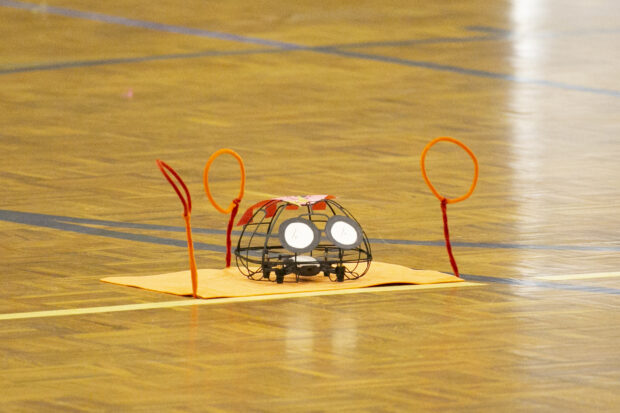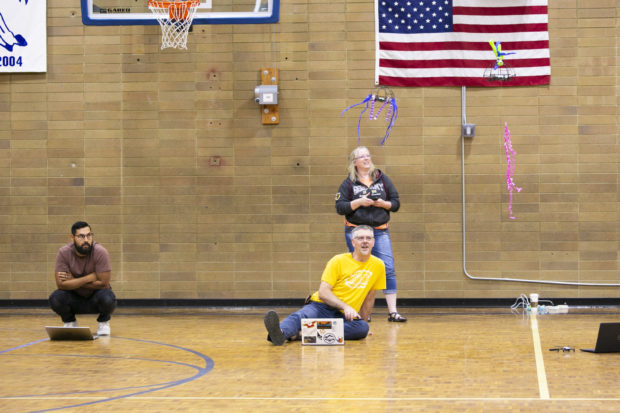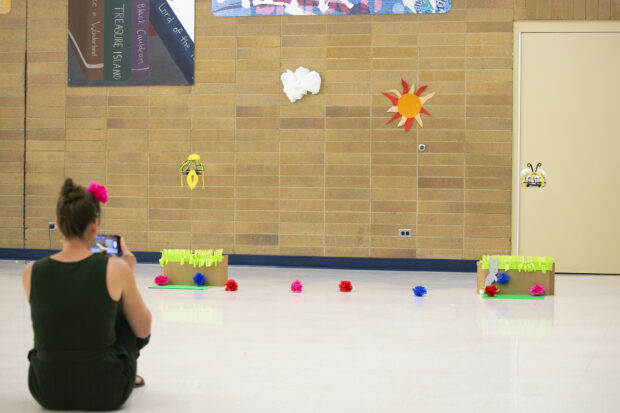
The cafeteria and gym at Lowell Scott Middle School were roaring with sounds that many would find familiar. In the gym, Harry Potter and a member of Slytherin chased the Golden Snitch. In one corner of the cafeteria, SpongeBob Squarepants danced with his jellyfish friends while another corner saw a shark chasing its prey.
That’s what the teachers put on display during the drone performance showcase, one of the culminating events for a three-day drone training for Idaho teachers. The drone training was hosted by PCS Edventures with funding by the Idaho STEM Action Center.
Spent part of today at Lowell Scott Middle School, one of three sites in Idaho where PCS Edventures and the Idaho STEM Action Center have been teaching teachers how to operate drones.
The performances today showcased their skills, including this Harry Potter themed show. pic.twitter.com/C8CrnShSY9— Nik Streng (@NikStreng) July 14, 2021
In total, 46 teachers took the training, which had locations in Boise, Coeur d’Alene and Pocatello. The teachers left with a classroom kit that came with six drones and curriculum to implement in their schools.

Michelle Victor, the director of STEM development for PCS Edventues, said the drone class was focused on approaching drone technology from an arts angle and most of the teachers at Wednesday’s showcase were at the elementary level. The training was modeled after what is done at Verity Studios, which uses drones for shows like concerts or even as art installations.
“We are always looking to find ways to get all kids encouraged into STEM,” she said.
Victor added that looking at drones from this angle adds a new world of STEM jobs that many might not even know exist. Verity Studios employs people whose job title is “drone costume designer,” which Victor said with a laugh.
The teachers went through a training to learn how to pilot the drones manually and also learned how to code the drones so they could fly without a pilot.

Idaho School for the Deaf and Blind librarian Sharlyn Jackson and assistant technician specialist Tom Jackson both took part in the training, and finished their Shark Week-themed performance beaming over the thought of using the technology in their school.
With the ability to use the code to pilot the drones, the loud buzzing of the propellors and the tactile feeling around the decorations used, the Jacksons agreed that the training they took is something they can have both the deaf and blind students do in class.
“It’s an opportunity for them to be successful at something that others do as well,” she said.
Tom Jackson said many of the students they work with need assistive technology in their everyday lives to function in school, but the drones would be a new inclusive technology that they want to use.
“It keeps building from there. They can be more effective users of technology in the future.”

